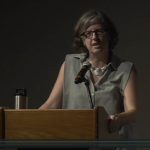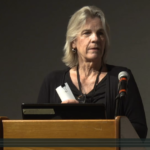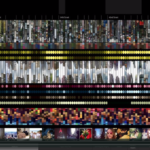
SMRITI KAUL
Convo Research & Strategy Pvt Ltd
[s2If current_user_can(access_s2member_level1)]
[/s2If]
[s2If !is_user_logged_in()]
Join EPIC to access video:
→ Learn about Membership
→ Browse Video Library
[/s2If]
[s2If current_user_is(subscriber)]
Join EPIC to access video:
→ Learn about Membership
→ Browse Video Library
[/s2If]
PechaKucha Presentation—This paper raises the implications of simplifying algorithms for scale and uplifting content that is damaging for human evolution. Technology is powerful because of its scale and also disempowering for the same reason. Scale is in the variables and online media, in the zest of empowering women, is deciding our fate. I get it when the housewife looks to YouTube to cook a meal. However, I also see the heartbreak when what should be freeing is actually being used to throttle progress. When a girl from a small sub-segment of global population like Rajasthan, while wanting to feel empowered realises that she's unable to measure up? Are we responsible...









